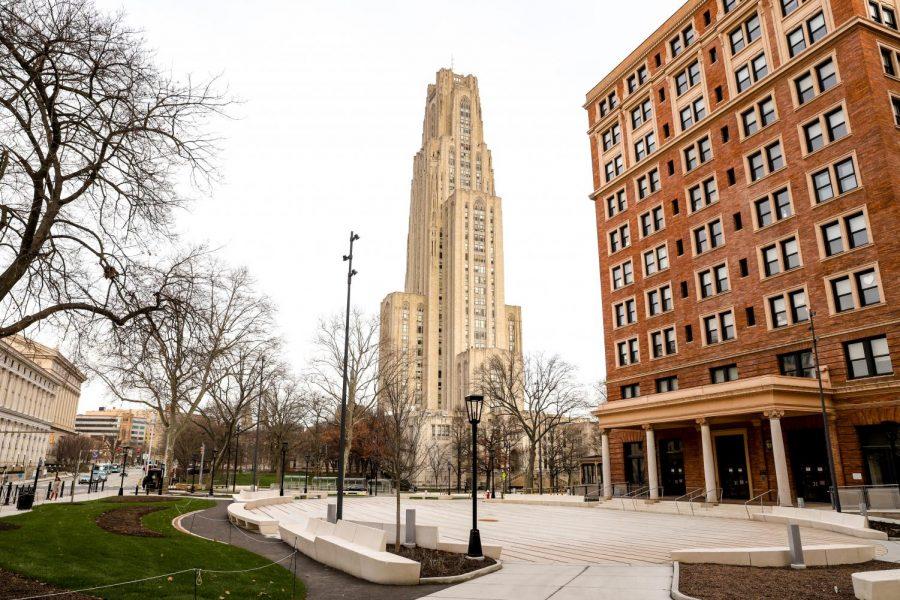New loading zones bring efficiency to Pittsburgh
The Cathedral of Learning and William Pitt Union on campus.
June 14, 2022
Since the start of the COVID-19 pandemic, on-demand deliveries, transportation network companies and food deliveries have seen a vast spike in popularity. Delivery drivers for services like Uber Eats and DoorDash consistently park at curbs to quickly grab food or grocery deliveries for customers. In turn, the use of the curb has increased, dramatically leading to congestion.
To confront this phenomenon, the city of Pittsburgh recently announced the adoption of new loading zones across Bloomfield, downtown Pittsburgh, Oakland and Southside Flats. The Department of Energy awarded Los Angeles software company Automotus a $4 million grant to streamline the first phase of experimentation and evaluation of curb management policies.
According to the Automotus website, the company has partnered with Pittsburgh Parking Authority and Pittsburgh’s Department of Mobility and Infrastructure to implement a system to inform and automate parking for commercial vehicles.
The website says the newly introduced technology is attached to longstanding infrastructures, such as surrounding street lights or signs, which can read the license plates that park in the designated loading zone. Drivers are expected to scan the QR code located on nearby purple signs, which will lead them to enter relevant information — such as their license plates — to sign up for the curb operation.
According to the website, the rate which drivers must pay is determined through a tiered system in which prices increase throughout time spent at the loading zone. The entire process remains fully automated, including payment and invoices.
The website said the ultimate goals of the smart loading zones are to reduce emissions, safety hazards and the amount of time spent parked at the curb. With the automated technology, the website said the loading zones can reduce idling and congestion and limit the time it takes drivers to find parking. The website also said the smart loading zones are expected to increase parking turnover for businesses, generating possible revenue throughout the city.
Twenty zones in total will be installed for the complete yearly trial in Pittsburgh, according to the City of Pittsburgh’s website.



